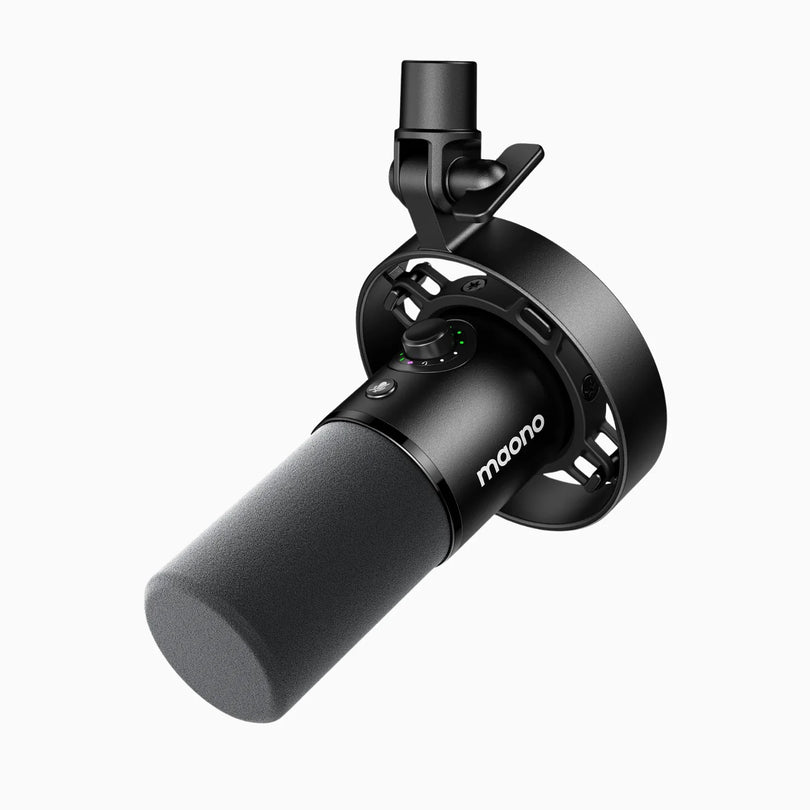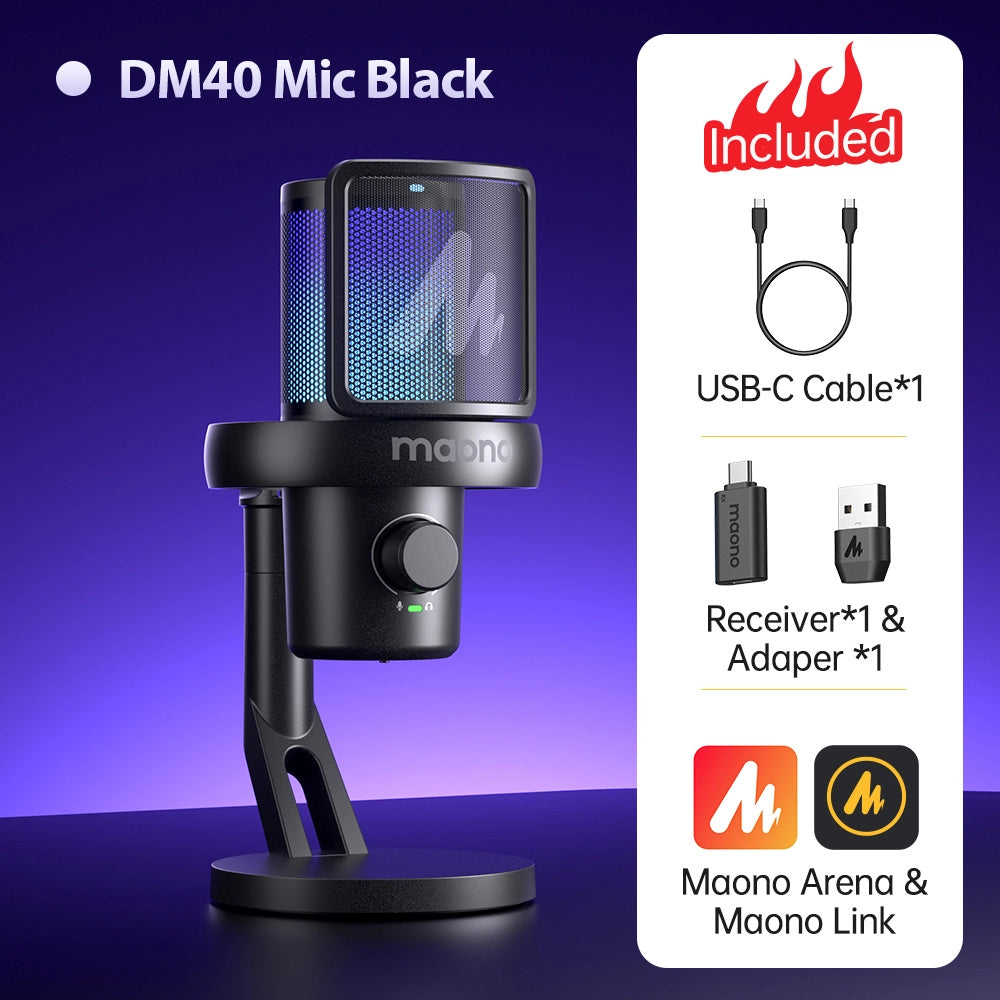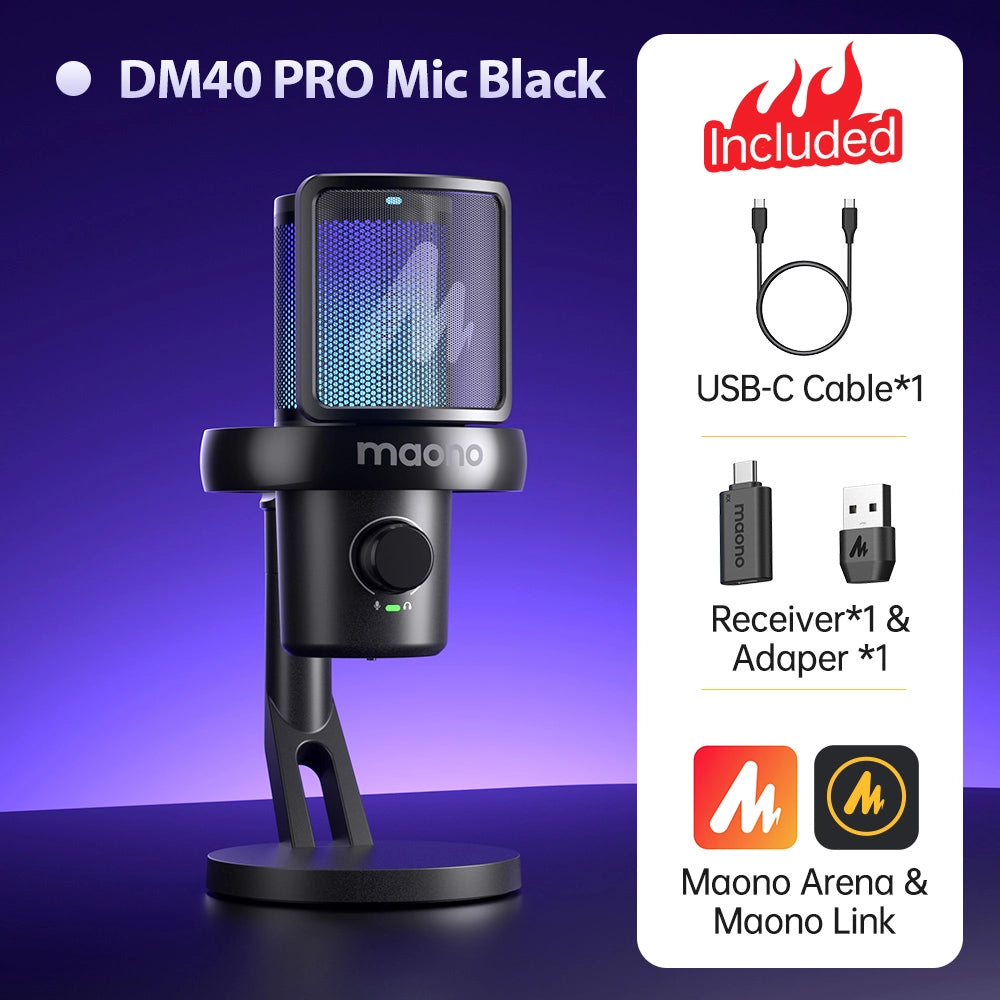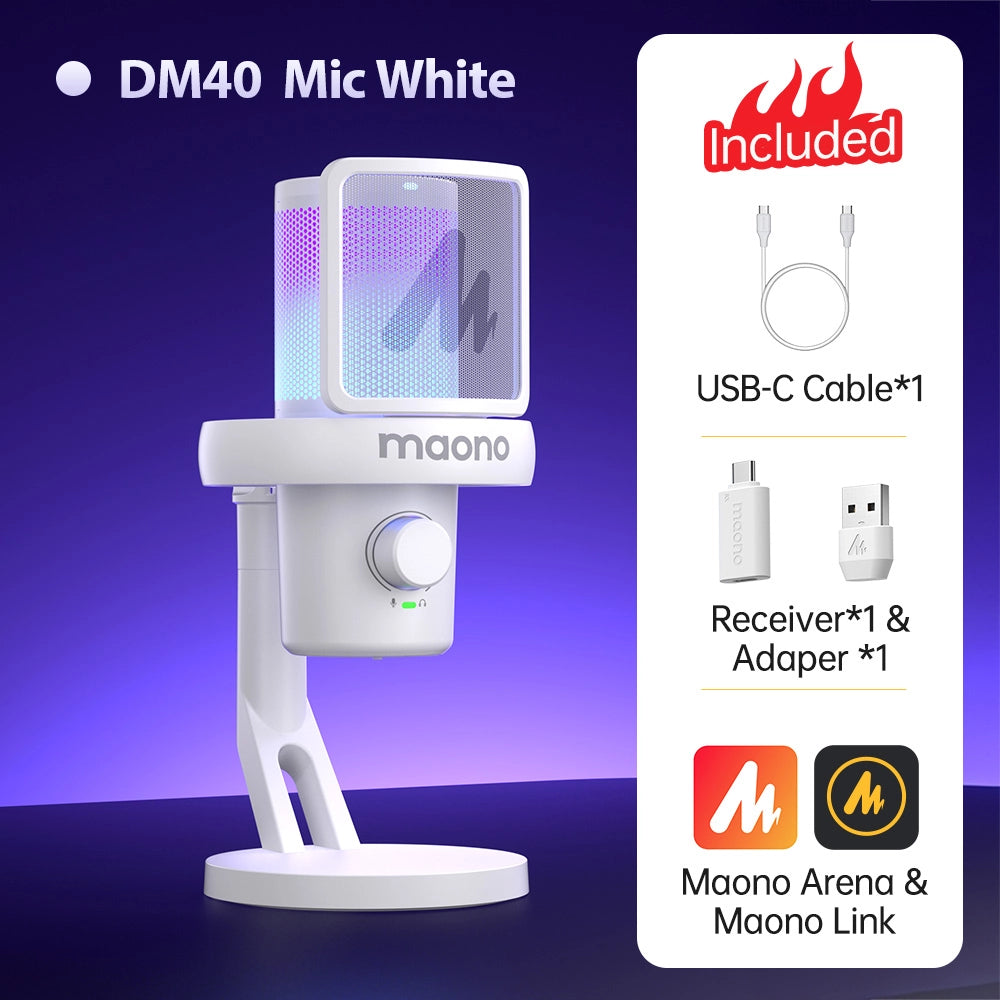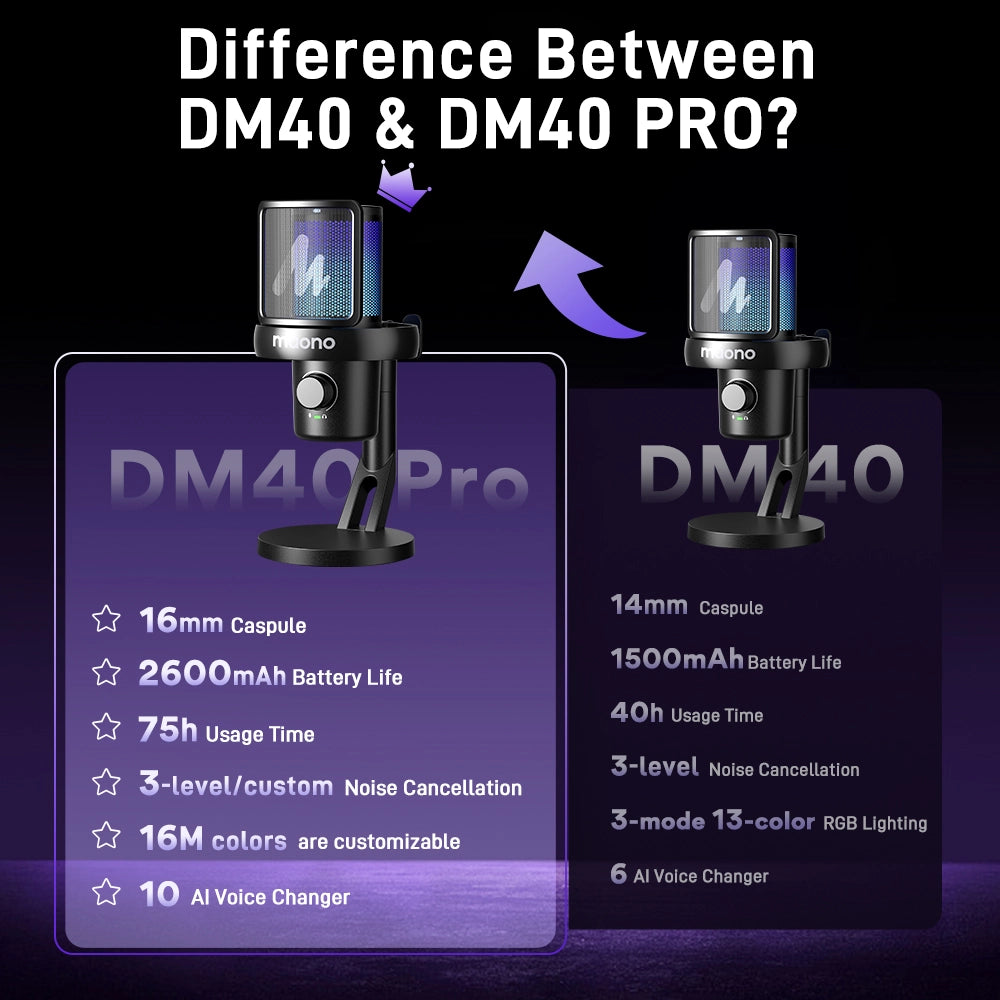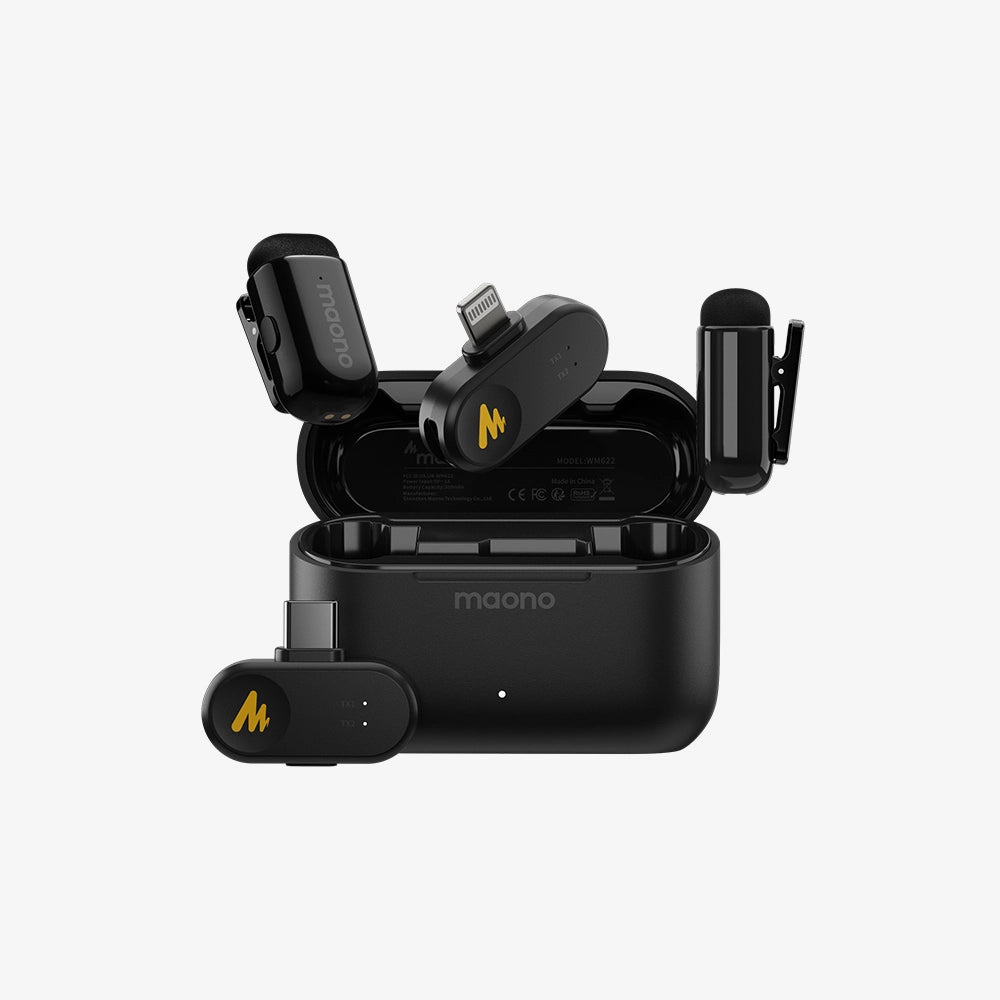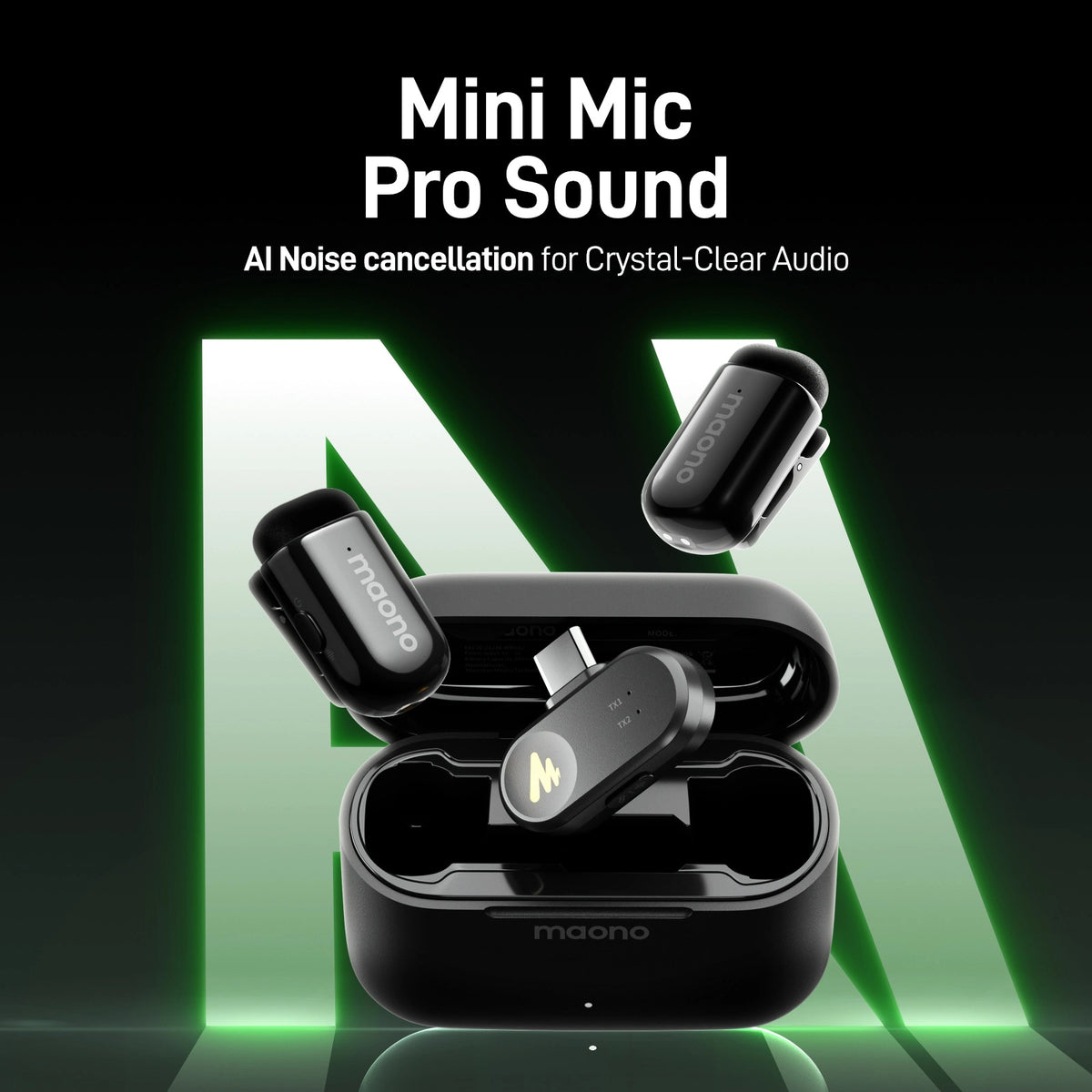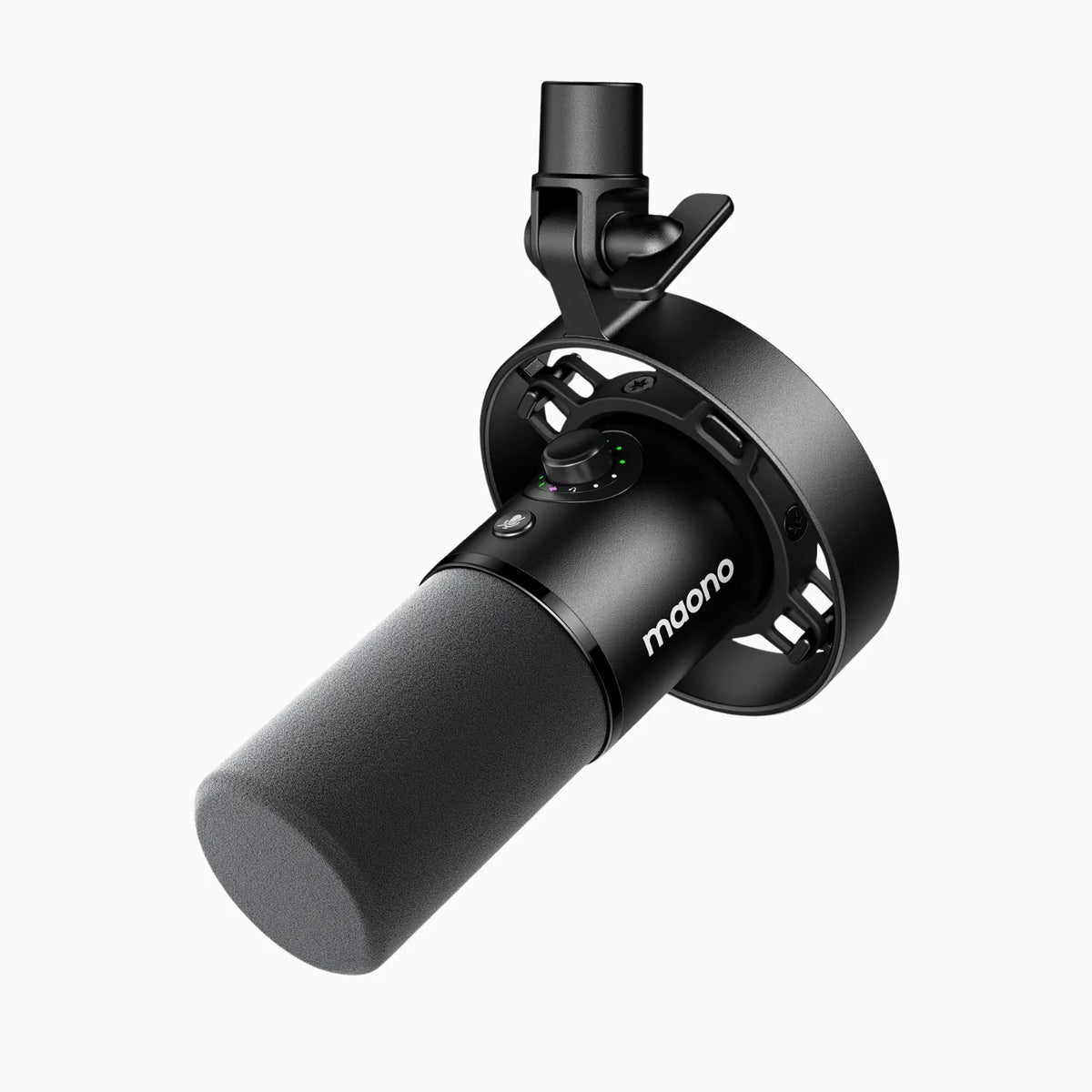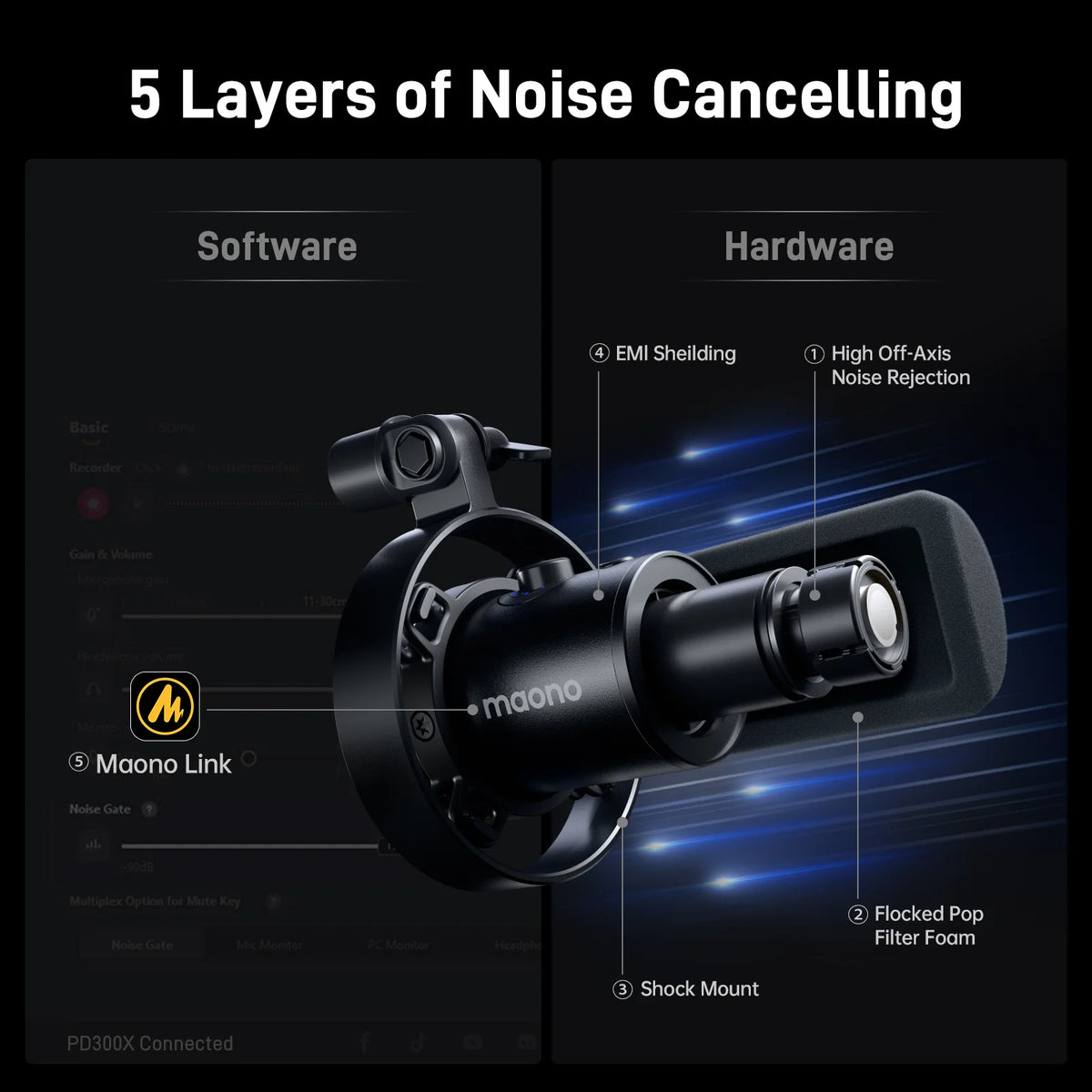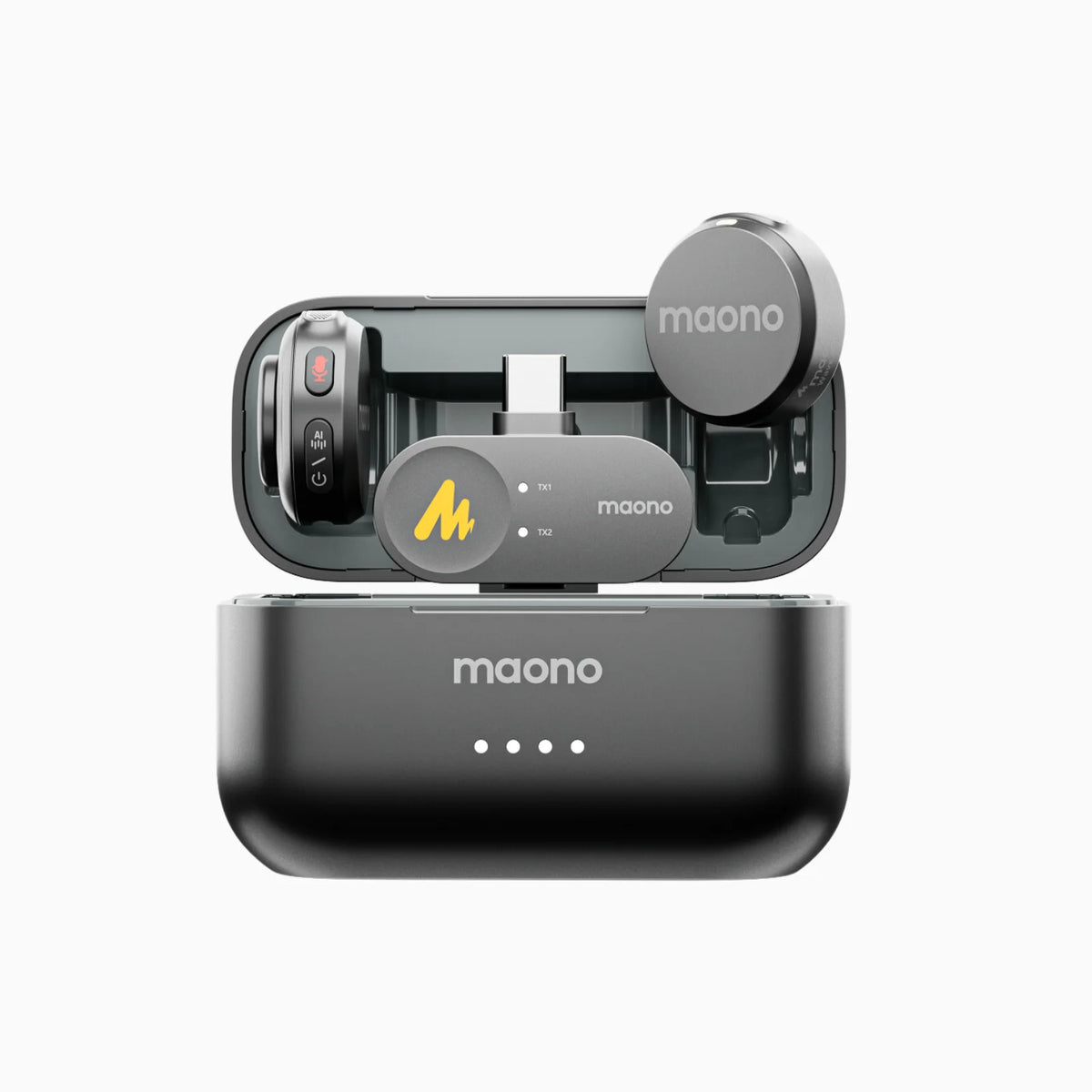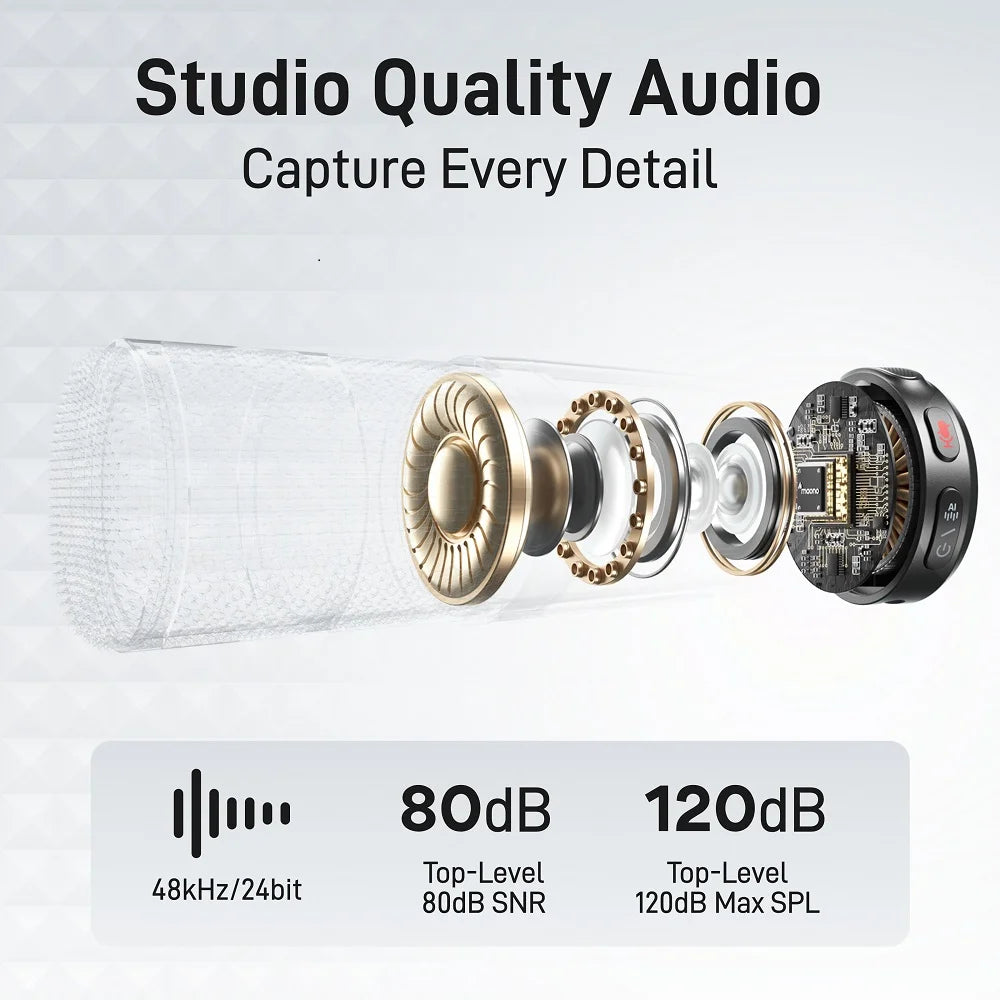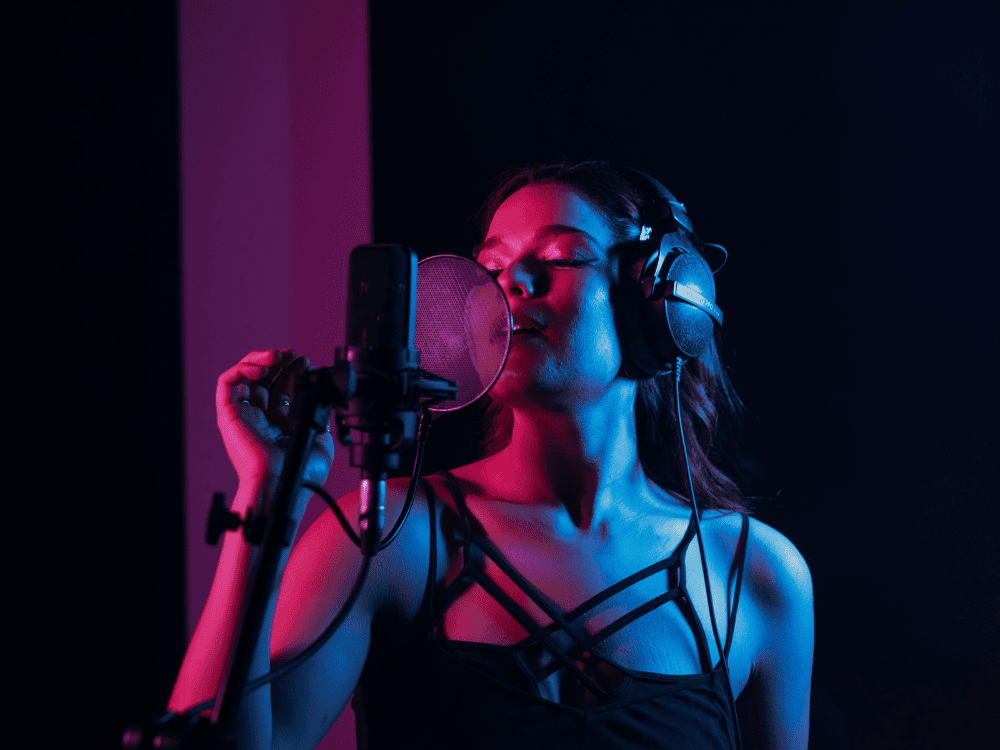In the ever-evolving world of music production, finding the right equipment is crucial for capturing pristine vocal recordings. USB microphones are essential tools for singers and recording enthusiasts, they offer convenience without compromising quality. USB microphones have become indispensable tools for modern musicians and recording enthusiasts, offering convenience and high-quality sound without complex setups. When capturing pristine vocal recordings, choosing the best singing USB microphone is essential. In this comprehensive guide, we'll delve into the top USB microphones for singing in 2024, answering common questions and offering detailed descriptions to help you find the perfect mic for your needs.
Also, we will cover a range of topics to ensure you have all the information needed to choose the best USB microphone for singing. We will look at different types of microphones, their features, and how they compare. We'll also address some frequently asked questions about USB microphones and provide detailed descriptions of each recommended microphone.
Why USB Microphones?
USB microphones have revolutionized the way we record music, offering high-quality sound with the simplicity of plug-and-play functionality. Whether you're a professional singer, a budding artist, or simply recording at home, the right USB microphone for singing can make a significant difference in your vocal recordings.
Singers, whether professional or beginner, often choose USB microphones for several compelling reasons:
-
Ease of Use
USB microphones are incredibly straightforward to set up and operate. They typically plug directly into a computer or recording device without requiring additional audio interfaces or complex configurations. This simplicity makes them ideal for singers who prioritize convenience and want to focus more on their performance than technical setup.
-
Affordability
Compared to traditional studio setups with XLR microphones and audio interfaces, USB microphones are generally more affordable. They offer a cost-effective solution for singers who are starting out or working within a budget, allowing them to achieve decent recording quality without significant financial investment.
-
Portability
USB microphones are often compact and lightweight, making them highly portable. Singers can easily carry them to different locations for recordings or performances without the need for heavy equipment. This flexibility suits modern musicians who may need to record on the go or perform in various venues.
-
Integrated Features
Many USB microphones come with built-in features such as headphone jacks for real-time monitoring, volume controls, and even mute buttons. These integrated features enhance usability and allow singers to monitor their performance directly through the microphone, ensuring they capture the best possible recording.
-
Quality Improvements
Over the years, USB microphone technology has advanced significantly, offering improved sound quality comparable to traditional studio setups. This advancement makes USB microphones a viable choice even for professional singers who require high-fidelity recordings without the complexity of traditional equipment.
-
Compatibility
USB microphones are compatible with a wide range of recording software and operating systems, including popular platforms like Windows, macOS, and even some mobile devices with USB OTG support. This compatibility ensures that singers can easily integrate their microphones with their preferred recording setup, enhancing workflow efficiency.
Singers, whether seasoned professionals or beginners, choose USB microphones for their ease of use, affordability, portability, integrated features, quality improvements, and broad compatibility. These advantages make USB microphones a versatile and practical choice for recording vocals in a variety of settings and scenarios.

List of The Best Singing USB Microphones in 2024
- Shure SM7B
- AKG C414 XLII
- Lewitt LCT 940
- Neumann TLM 102
- Shure SM58
- Audio-Technica AT2020
- Aston Microphones Spirit
- Rode NTK
- Lewitt LCT 440
- AKG C636
- Sennheiser EW 500 G4 935
- Telefunken M80
- Lewitt Pure Tube
- Maono PM422
- Maono A04
Frequently Asked Questions
1. Which is the best USB mic for singing?
The best USB mic for singing depends on your specific needs and budget. However, the Shure SM7B is often considered the best overall due to its exceptional sound quality and versatility. If you need an affordable USB mic with excellent audio quality, the best mic for you can be one of Maono's USB microphones.
2. Can you record vocals with a USB mic?
Yes, USB microphones are great for recording vocals. They are easy to set up and often include features like built-in preamps and headphone jacks for monitoring.
3. Are USB mics good for recording music?
Absolutely. USB microphones have come a long way and now offer high-quality audio that is suitable for professional music recordings. They are especially convenient for home studios and portable setups.
Best Singing Microphone for Vocals
1. Shure SM7B - Best-Selling Microphone for Singers
Specifications
Type: Dynamic
Frequency Response: 50Hz - 20kHz
Polar Pattern: Cardioid
Connectivity: USB
Monitoring: Yes
Pros:
- Exceptional sound quality
- Versatile for various recording environments
- Durable construction
Cons:
- Higher price point
- Requires additional equipment for optimal use
The Shure SM7B is a legendary microphone known for its warm and smooth sound, making it ideal for vocals. Its cardioid pattern helps isolate the voice from background noise, and its rugged construction ensures durability. While it’s on the pricier side, its performance justifies the investment.
2. AKG C414 XLII - Best in Versatility and Flexibility
Specifications:
Type: Condenser
Frequency Response: 20Hz - 20kHz
Polar Pattern: Nine selectable patterns
Connectivity: USB
Monitoring: Yes
Pros:
- Multiple polar patterns
- High-quality sound reproduction
- Versatile for different recording scenarios
Cons:
- Expensive
- Complex setup for beginners
The AKG C414 XLII is renowned for its versatility, featuring nine selectable polar patterns. This makes it suitable for a variety of recording situations, from solo vocals to choirs. Its detailed sound reproduction and flexibility make it a favorite among professionals.
3. Lewitt LCT 940 - Best Tube and FET Mic
Specifications:
Type: Hybrid (Tube and FET)
Frequency Response: 20Hz - 20kHz
Polar Pattern: Multi-pattern
Connectivity: USB
Monitoring: Yes
Pros:
- Hybrid technology offers versatile sound
- Excellent build quality
- Multi-pattern options
Cons:
- High cost
- Requires understanding of hybrid technology
The Lewitt LCT 940 combines tube and FET technology, providing a unique and versatile sound signature. This hybrid microphone allows users to switch between or blend the two technologies, making it ideal for achieving different tonal qualities. Its multi-pattern options further enhance its versatility. Tube microphones use vacuum tubes to capture sound, offering a warm and vintage tone, while FET microphones use transistors for a cleaner and more modern sound.
4. Neumann TLM 102 - Best in Recording Vocals and Instruments
Specifications:
Type: Condenser
Frequency Response: 20Hz - 20kHz
Polar Pattern: Cardioid
Connectivity: USB
Monitoring: Yes
Pros:
- Studio-quality sound
- Compact and durable design
- High SPL handling
Cons:
- Pricey
- Limited to cardioid pattern
The Neumann TLM 102 is a compact studio microphone that delivers exceptional sound quality. Its cardioid pattern ensures focused recordings, and it can handle high sound pressure levels, making it suitable for both vocals and instruments. It’s a premium choice for serious recording artists.
5. Shure SM58 - The Best Choice for Live Performances
Specifications:
Type: Dynamic
Frequency Response: 50Hz - 15kHz
Polar Pattern: Cardioid
Connectivity: USB
Monitoring: Yes
Pros:
- Industry-standard for live performance
- Durable and reliable
- Good feedback rejection
Cons:
- Not the best for studio recordings
- Limited frequency response
The Shure SM58 is a staple in live performance settings, known for its durability and reliability. Its cardioid pattern provides excellent feedback rejection, making it ideal for stage use. While it’s not the top choice for studio recordings, it remains a go-to for live vocals.
6. Audio-Technica AT2020 - Budget-friendly Vocal Microphone
Specifications:
Type: Condenser
Frequency Response: 20Hz - 20kHz
Polar Pattern: Cardioid
Connectivity: USB
Monitoring: Yes
Pros:
- Affordable
- Good sound quality for the price
- Durable
Cons:
- Lacks advanced features
- Basic design
The Audio-Technica AT2020 offers great value for budget-conscious musicians. Despite its affordable price, it provides good sound quality and durability. Its cardioid pattern ensures clear vocal recordings, making it a popular choice for home studios.
7. Aston Microphones Spirit - Best in Quality and Durability
Specifications:
Type: Condenser
Frequency Response: 20Hz - 20kHz
Polar Pattern: Cardioid, Omni, Figure-8
Connectivity: USB
Monitoring: Yes
Pros:
- Excellent engineering and build quality
- Multiple polar patterns
- Natural sound
Cons:
- Higher price range
- Requires careful handling
The Aston Microphone Spirit is a testament to British engineering, offering superb build quality and natural sound. With multiple polar patterns, it’s versatile for various recording needs. It’s a solid choice for those who appreciate craftsmanship and high-quality audio.
8. Rode NTK - Mid-Range: One of the Best Tube Condenser Mics
Specifications:
Type: Tube Condenser
Frequency Response:** 20Hz - 20kHz
Polar Pattern: Cardioid
Connectivity: USB
-Monitoring: Yes
Pros:
- Warm, rich sound
- High build quality
- Good for vocals and instruments
Cons:
- Requires careful maintenance
- Higher cost
The Rode NTK is a tube condenser microphone known for its warm and rich sound. Its cardioid pattern makes it ideal for vocals, while its high build quality ensures durability. It’s a great mid-range option for those seeking tube mic characteristics.
9. Lewitt LCT 440 - Perfect Choice for Vocals: Mid-Range Condenser
Specifications:
- Type: Condenser
- Frequency Response: 20Hz - 20kHz
- Polar Pattern: Cardioid
- Connectivity: USB
- Monitoring: Yes
Pros:
- High-quality sound
- Durable design
- Affordable for mid-range
- Comes with pop-filter, windshield, and shock mount
Cons:
- Limited to cardioid pattern
- No advanced features
The Lewitt LCT 440 offers excellent sound quality and durability at a mid-range price. Its cardioid pattern is perfect for focused vocal recordings, and it’s built to last. It’s a reliable choice for musicians looking for quality without breaking the bank.
10. Maono PM422

Specifications:
- Type: Condenser
- Frequency Response: 30Hz - 16kHz
- Polar Pattern: Cardioid
- Connectivity: USB
- Monitoring: Yes, the headphone monitoring jack
Pros:
- Affordable price
- Plug-and-play USB connectivity
- Includes headphone monitoring
Cons:
- Limited frequency response compared to higher-end models
The Maono PM422 is a condenser microphone designed for versatility and affordability. It features a cardioid polar pattern, ideal for capturing vocals while minimizing background noise. Its USB connectivity allows for easy setup with computers and compatible devices. The microphone includes a headphone monitoring jack for real-time audio monitoring, making it suitable for home recordings, podcasts, and streaming.
11. Maono A04

Specifications:
- Type: Condenser
- Frequency Response: 20Hz - 20kHz
- Polar Pattern: Cardioid
- Connectivity: USB
Pros:
- Budget-friendly price- Decent frequency response for vocals
- Simple plug-and-play setup
Cons:
- None to mention (so far)
The Maono A04 is a straightforward condenser microphone aimed at beginners and budget-conscious users. It features a cardioid polar pattern, which focuses on capturing sound from the front while reducing ambient noise. Its USB connectivity ensures easy compatibility with computers and laptops, making it suitable for recording vocals, voiceovers, and online content creation. While it lacks built-in monitoring, its simplicity and affordability make it a practical choice for entry-level recording needs.
Best Vocal Mics: Quick List
Best studio condenser microphone for vocals:
- AKG C414 XLII
- Lewitt LCT 940
- Neumann TLM 102
- Lewitt Pure Tube
- Audio-Technica AT2020
- Aston Microphones Spirit
- Rode NTK
- Lewitt LCT 440
- Maono PM422
- Maono A04
Best dynamic microphone for vocals:
- Shure SM7B
- AKG C636
- Telefunken M80
- Shure SM58
Wireless Vocal Mic:
- Sennheiser EW 500 G4 935 - Wireless Vocal Mic, Liberates Creativity
Best Vocal Mics: Buying Advice
1. What Type of Microphone Do I Need?
Picking the right type of microphone depends on your recording environment, intended use, and the sound you want to achieve. Dynamic microphones are generally more durable and suitable for live performances, while condenser microphones offer greater sensitivity and detail, making them ideal for studio recordings.
2. Which Pickup Pattern Do I Need?
The pickup pattern, or polar pattern, determines how the microphone captures sound. Cardioid patterns are great for isolating vocals, while omnidirectional patterns capture sound from all directions. Figure-8 and multi-pattern microphones offer additional flexibility for different recording scenarios.
3. Who Makes the Best Microphone for Vocals?
Several brands are renowned for their vocal microphones, including Shure, Neumann, AKG, and Audio-Technica. Each brand has its strengths, so the best choice depends on your specific needs and preferences. Maono offers the best singing USB microphones for less the price. Whether you’re a beginner or a pro, nothing could go wrong with choosing a mic for its high audio quality, affordability, and durability.

Conclusion
Picking the best singing USB microphone in 2024 involves understanding your specific recording needs and budget. From the versatile Shure SM7B to the budget-friendly Maono A04 or the user-friendly PM422, there’s a USB microphone for every singer and recording situation. By considering factors like mic type, polar pattern, frequency response, monitoring capability, and connectivity, you can find the perfect microphone to elevate your vocal recordings.




